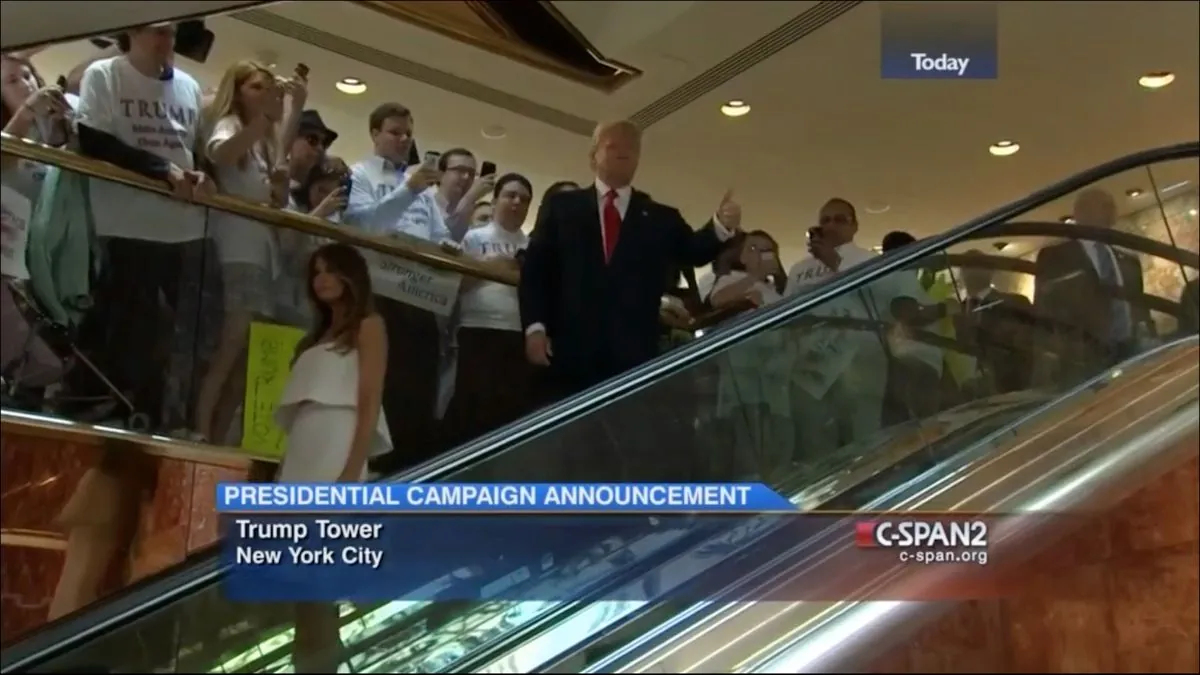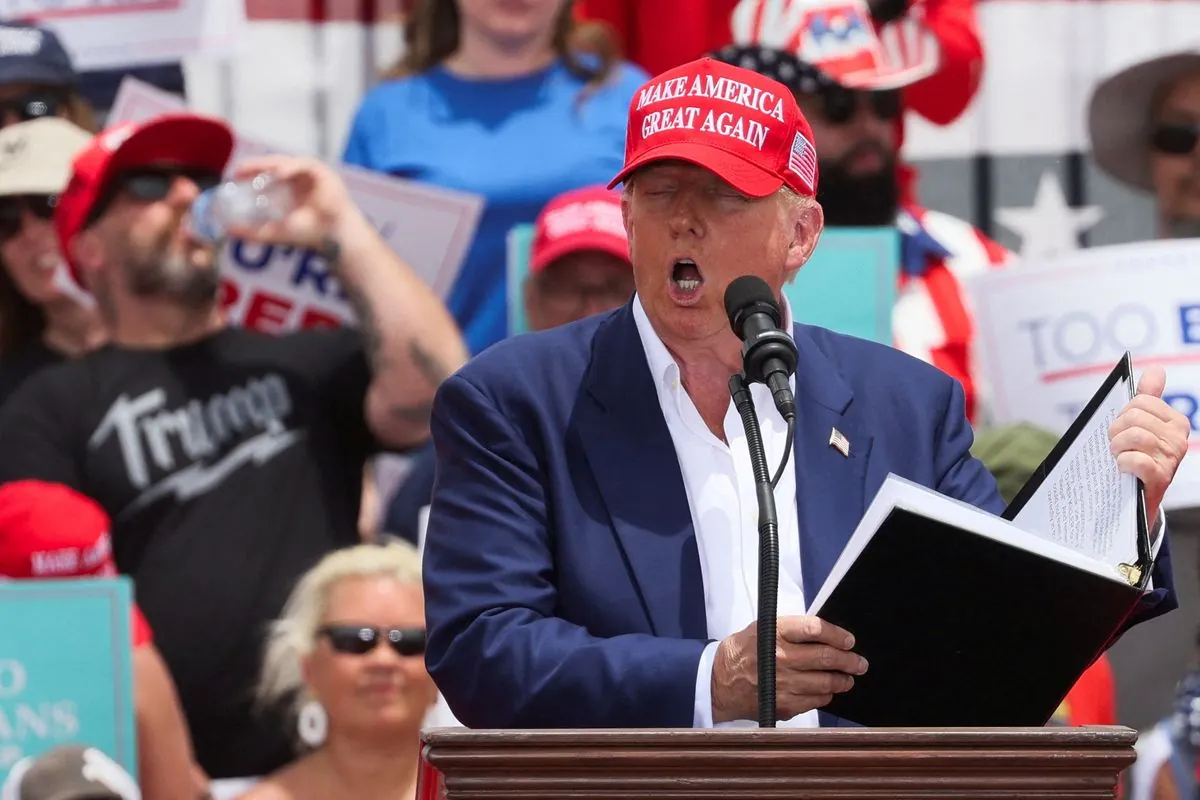Trump's Political Journey: From TV Star to Controversial President
Donald Trump's rise from reality TV host to polarizing political figure has shaped American politics for nearly a decade, leaving a legacy of controversy and significant policy changes.

Donald Trump's entry into the political arena on June 16, 2015, marked the beginning of a transformative era in American politics. For voters casting their first ballots in November 2024, this event occurred when they were merely 8 years old, highlighting the longevity of Trump's influence on the national stage.
Trump's journey to political prominence began long before his presidential bid. Originally known for his real estate ventures through the Trump Organization, founded by his father Fred Trump, Donald Trump gained celebrity status in the 1980s with his bestselling book "The Art of the Deal." His public profile soared further when he hosted NBC's "The Apprentice" for 14 seasons from 2004 to 2015.
The transition from business mogul to political figure was marked by controversy. Trump's campaign announcement speech included inflammatory remarks about Mexican immigrants, setting the tone for a divisive campaign. Despite initial skepticism, his unconventional approach resonated with many Republican voters, particularly on issues like immigration.

Throughout the 2016 campaign, Trump made numerous controversial statements, including disparaging remarks about Senator John McCain's war record and crude comments about women captured on the "Access Hollywood" tape. These incidents, rather than derailing his campaign, often seemed to bolster his support among certain voter demographics.
"I could stand in the middle of Fifth Avenue and shoot somebody, and I wouldn't lose any voters, OK? It's, like, incredible."
Trump's presidency, spanning from January 20, 2017, to January 20, 2021, was characterized by significant policy changes and ongoing controversies. Key actions included implementing a travel ban on several Muslim-majority countries, withdrawing from the Paris Climate Agreement, and signing the Tax Cuts and Jobs Act of 2017.
The administration's "zero tolerance" immigration policy, which led to family separations at the border, sparked widespread outrage. Trump's response to events such as the Charlottesville rally and the COVID-19 pandemic also drew criticism.
Trump's term concluded with two impeachments, making him the only U.S. president to be impeached twice. The second impeachment was related to the January 6, 2021 Capitol riot, which occurred following his persistent false claims about election fraud.
Post-presidency, Trump has faced multiple indictments, including charges related to classified documents found at his Mar-a-Lago residence. Despite legal challenges, he remains a significant figure in Republican politics.
Trump's impact on American politics extends beyond his term, shaping discourse and policy debates for nearly a decade. As new voters enter the political arena, understanding this recent history becomes crucial for informed participation in the democratic process.


































